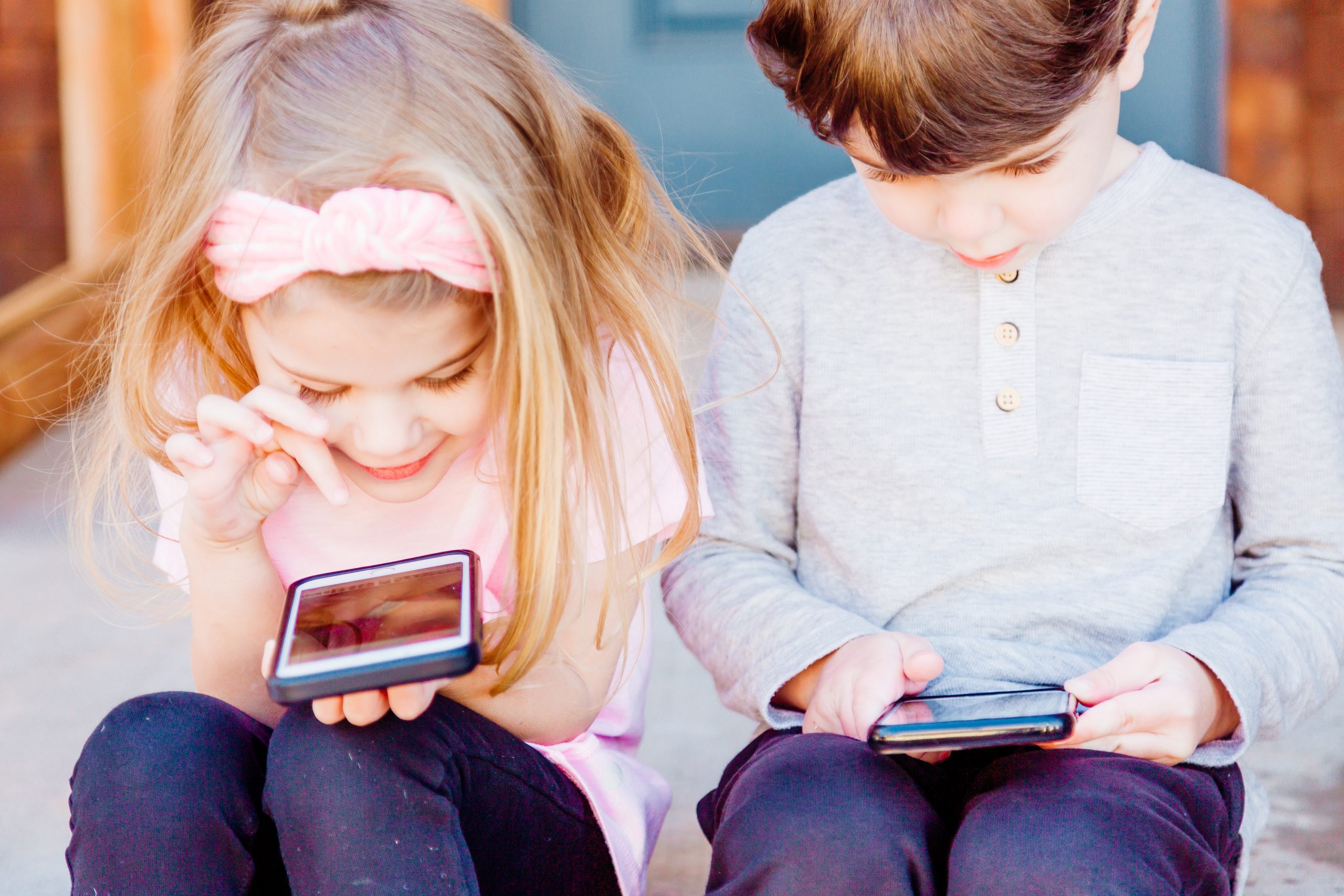
I remember my first cell phone. It was ZacK Morris-esque and had room to save nine phone numbers. Texting was more difficult than it was worth — we used acronyms, not to be cute, but because writing the entire word would take an hour. The only reason I got a cell phone at 16 years old was because I missed curfew and told my mom I’d had car trouble. (I hadn’t.) She got me a cell phone to take that excuse away more than to give me the ability to make calls.
I LOVE that my boys each have a cell phone. They each got their cell phones when they started 5th grade because they were walking to school with their friends and no longer needed us to drive them around. The world can feel like a big, scary place. Giving my kids a way to contact me or my husband if they need to brings me peace. I want them to have a literal lifeline if something goes wrong, at school or anywhere else.
But despite the reassurance I feel knowing my boys can reach me anytime, giving them cell phones brings up a major concern: The internet can be a horrifying place.
Cell phones are computers now. Gone are the days of playing Snake and Minesweeper to pass the time. Now, at any moment, we can shop, scroll social media, watch endless videos, and even complete homework from a device that fits in our hands. And the infinite websites and apps provide a way for people — who haven’t been vetted by me — to reach my children. Whether it’s in the comments section of a YouTube video, a response to a social media post, or even a well-meaning blog, access to so much can’t be good for the teenage brain.
So, yes, there are concerns when you give your child a cell phone. What are they being exposed to? Who has their number? What sites are they scrolling? Are they being sneaky? Do I have all the information I need?
Adding any device to your child’s skill set can be scary and overwhelming. There are parental controls, GPS tracking apps, and ways to cut off a device with a click of a button. But I’m going to be real with you here. I CANNOT add that to my plate. I can’t micromanage their every click. But I also can’t just give them the world at their fingertips and hope for the best.
My husband grew up with a micromanager of a mom who watched and interrogated his every move. I grew up with a “hands off” mother who trusted me to be truthful all the time. And let’s just say neither of us followed the straight and narrow very well in our teenage years.
So, I know there is somewhere in the middle where I can monitor cell phone use confidently without micromanaging. I can trust them without being blind to what’s actually happening.
And I think I have figured it out. At least, what works for my family. I found something that works better than parental controls. Something that allows me to trust my children with caution. And it adds very little to my plate: open conversations.
OK, hear me out. This is going to sound a bit simple, but we have had a ton of conversations about cell phones and the internet. My sons hear from my husband and me what is out there and how to avoid it. They are allowed on social media and have opted, for the most part, not to create an account. They have not just been told, “Don’t share your information online.” They have been told WHY. The brutal truth of what can (and does) happen. We didn’t scare them into anything, we informed them of the risks.
I know, as a person and a mom, there’s no way I can to keep up with monitoring the screens and internet use of five children. And even if I could, let’s face it — they would figure out a way around it. Kids are practically born tech savvy, and cell phones are like an appendage. I do grab their phones and scroll through a few times a month. I check their web history, apps, and messages. I have found some things that are questionable but not dangerous, and we have conversations each time.
In reality, they are growing up in a world where cell phones, the internet, and apps are part of their life. I have taken the stance that it is better to guide them through it with few restrictions so they can learn warning signs early. It might not work for each family and child. But I’ve found our happy medium.












